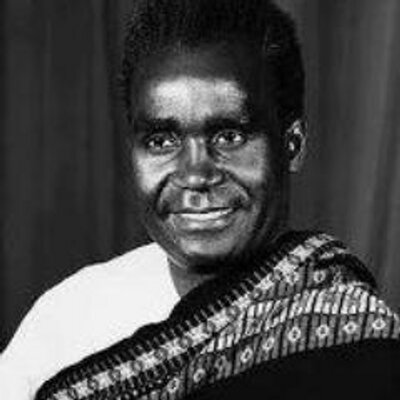
Anderson Mazoka, the President that never ruled.
Fifteen years ago on May 24, Zambia’s politician and businessman Anderson Kambela Mazoka founder of opposition United Party for National Development – UPND died in Johannesburg, South Africa
Fifteen years ago on May 24, Zambia’s politician and businessman Anderson Kambela Mazoka founder of opposition United Party for National Development – UPND died in Johannesburg, South Africa

Mazoka the president who was elected to led the country but never ascended to the throne in 2001 because his victory was robbed.
Mazoka could not be declared the winner despite leading the poll beyond stipulated time by the constitution. The MMD under outgoing president Frederick Chiluba could not release the results for four days and only did so on the fifth day after manipulating the poll.
Some areas in the North of the country where results are alleged to have been rigged people were voting for two days contrary to the law.
There were reports of serious malpractices, the ballot boxes that were ferried with Zambia Air Force planes were allegedly to have been stuffed and swapped in the process.
Refugees were allegedly to have been deployed in polling stations to vote. Number of registered votes in many areas could not tally with registered number of voters. 

The Times of Zambia, a government owned and controlled Daily Newspaper published two editions after official poll day. The special edition aimed wooing the voters that were still voting in the North had a screaming headline that the MMD candidate was headed for victory.
When results were released Levy Mwanawasa was announced as the winner with a two percent difference ahead of Mazoka. Mazoka’s supporters protested but he had to calm them down and told them not to take the law on their hands. 

In the election petition key witnesses some that even took part in manipulating the poll testified against the state. This time Mwanawasa had differed with his predecessor, Chiluba
The former Head of Intelligence Xavier Chungu and MMD Campaign Chairman Vernoon Mwaanga who were key to the election of Mwanawasa testified for the petitioners.
During the famous under the tree meeting, Chiluba is said to have confessed and apologized to Mazoka for having robbed him of electoral victory.
Mazoka spent his last years perusing the petition in court which was later ruled in favour of Mwanawasa.
He never gave up and continued mobilizing ahead of the polls in 2006. Mazoka formed an Alliance with FDD and UNIP called UDA (United Democratic Alliance) which he was tipped to lead in the 2006 elections.
This was not to be, in the night of May 24 he died of kidney complication in South Africa.
President Mwanawasa gave him an official funeral.
President Mwanawasa gave him an official funeral.

• • •
Missing some Tweet in this thread? You can try to
force a refresh







